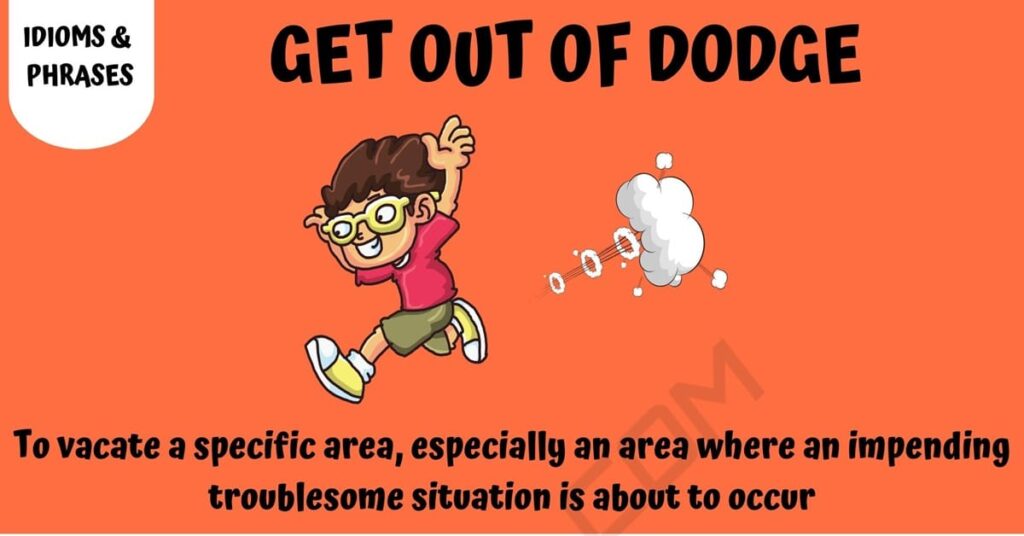Have you heard the phrase “get out of dodge” and wondered where it came from? It’s a phrase that’s been making the rounds in recent news, especially in the New York Times (NYT). While it may sound like a casual idiom, the phrase carries a deeper meaning that’s become highly relevant in today’s fast-paced world. In this article, we will break down what “get out of dodge” really means, its origins, and why it’s been popping up in media like the NYT.
What Does “Get Out of Dodge” Mean?
At its core, “get out of dodge” is an idiomatic expression that means to leave a place or situation quickly, especially when it’s becoming dangerous or uncomfortable. Think of it as a way of saying “escape” or “get out while you can.”
- The literal meaning: In the Old West, Dodge City was a town known for its rowdy, lawless atmosphere. To “get out of Dodge” meant leaving before things escalated or became too risky.
- Modern context: Today, the phrase is used more broadly. It could apply to leaving any situation, city, or environment that feels too stressful, unsafe, or challenging. It’s often used humorously but can carry a sense of urgency or caution.

Why Is “Get Out of Dodge” Trending in the NYT?
In the New York Times and other publications, the phrase has been gaining attention for its application in current events. But why is it resonating now? Here are a few reasons:
- Pandemic-Era Escape: The COVID-19 pandemic led many people to reevaluate their lives. From lockdowns to travel restrictions, many individuals used the expression to describe fleeing to safer or more comfortable places. Whether escaping crowded cities or the unpredictability of the pandemic, “getting out of dodge” became synonymous with finding a sense of freedom.
- Political Tensions: Political instability and divisiveness in various parts of the world have also contributed to the use of this phrase. As people sought refuge from stressors or anxiety-inducing environments, the phrase highlighted a desire for peace and stability.
- Digital Overload: In today’s digital age, constant information overload, social media pressure, and fast-paced news cycles have also pushed many to step back. Whether it’s a mental health break or simply avoiding the chaos, “getting out of dodge” encapsulates the growing trend of needing a break from overwhelming environments.
When to Use “Get Out of Dodge”
Now that we’ve established what the phrase means and why it’s trending, it’s important to know when and how to use it. Here are a few examples:
- Escape from Work: “After that stressful meeting, I needed to get out of dodge and take a walk around the block.”
- Travel for Relief: “I’ve been feeling so burnt out lately, so I’m planning to get out of dodge this weekend and head to the beach.”
- Avoiding Drama: “When the party started getting too intense, I decided it was time to get out of dodge.”
The beauty of this phrase is that it’s versatile. It can apply to both serious and lighthearted situations, depending on the context.
Why the Phrase Has Staying Power
“Get out of dodge” has remained relevant over the years for several reasons:
- It’s relatable: Everyone has experienced a time when they needed to leave a difficult situation or just needed a mental break.
- It’s memorable: The phrase has a catchy, almost cinematic quality, which makes it easy to recall.
- It’s adaptable: It can be used in a variety of contexts, from personal life to current events, which keeps it fresh and timely.
In essence, “getting out of dodge” is about survival, self-preservation, and sometimes simply knowing when to walk away.
Conclusion
Whether you’re reading the New York Times or just catching up with the latest trends, the phrase “get out of dodge“ continues to resonate as a metaphor for escaping overwhelming or chaotic situations. From political upheaval to the mental health challenges of modern life, this phrase perfectly captures our collective need for relief and peace. So, the next time you’re feeling like it’s time to leave a stressful situation, remember: it’s okay to get out of dodge.
Thank you for reading this post, stay updated with NewsBurry.com and don't forget to subscribe our Free Newsletter.





